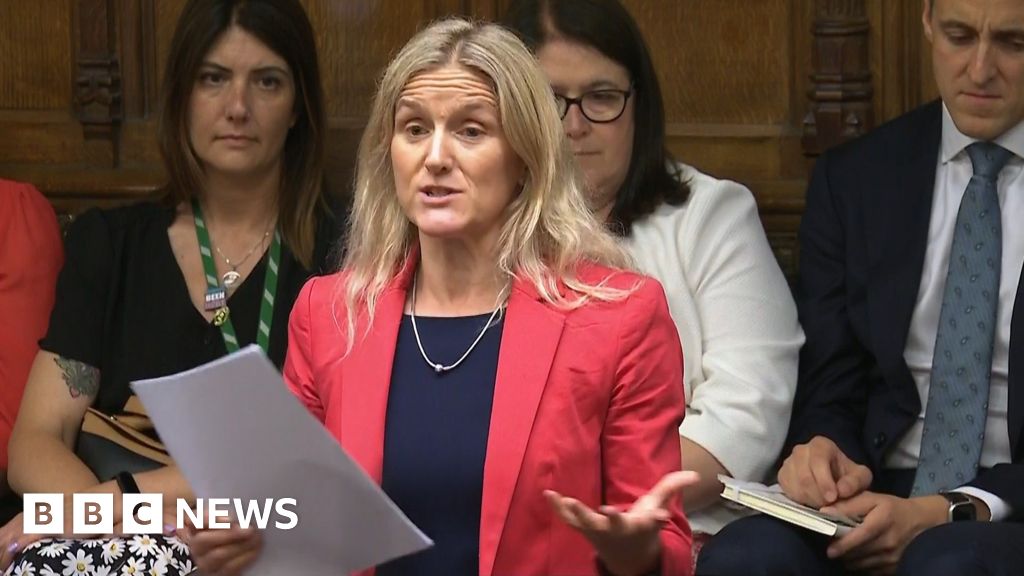The Senedd has lost a potential veto over whether assisted dying will be legal in Wales after a vote of MPs. The Commons reversed a change made to the bill at an earlier stage which would have given Members of the Senedd (MSs) the power to decide when the law comes into force. Under the plans now, the Senedd will be able to pass regulations on assisted dying services in Wales - but so will the UK government. MPs will vote later on Friday to decide whether the bill proceeds for further consideration in the House of Lords. The Senedd still faces asignificant decisionon whether to give consent to the legislation, in a vote expected in the autumn. It will not be legally binding, but is supposed to be respected by the UK Parliament and could indicate whether the Welsh government is willing to pass its own regulations for how the system would work. It is not clear what would happen in Wales if the Senedd did not come on board. The Senedd voted against a motion on a similar topic that failed to pass last October,albeit with a number of abstentions. The Health Secretary, Jeremy Miles, has expressed opposition to the legislation, and First Minister Eluned Morgan voted against the earlier Senedd motion. The situation has arisen because while criminal justice is controlled by Westminster, health in Wales is handled in Cardiff Bay. The England and Wales legislation spans both topics. Labour MP Kim Leadbeater, who has drawn up the assisted dying legislation, sought through amendments to remove commencement powers for the Senedd added by Liberal Democrat MP Sarah Olney at the earlier committee stage. Her amendments on the Senedd's powers passed 274 votes for, 224 against, with a majority of 50. At a debate last week supporters of the amendments said the changes better reflect the fact that criminal law is not the Senedd's responsibility. Olney said the bill gave the UK parliament the power to impose the law on the Senedd, despite having rejected the idea. Leadbeater's bill would only allow those over the age of 18 and with less than six months to live to receive medical assistance to die. According to the Commons voting record, more Welsh Labour MPs backed Leadbeater's amendment that opposed it. Supporters included senior figures Chris Bryant, Torsten Bell, Stephen Kinnock and Welsh Secretary Jo Stevens. Liberal Democrat MP David Chadwick also voted for the amendment. Those against included Welsh Labour MPs Stephen Doughty, Chris Evans and Nick Thomas-Symonds. All four Plaid Cymru MPs, most of whom have otherwise supported the legislation, voted against.
MPs deny Welsh Parliament veto on assisted dying
TruthLens AI Suggested Headline:
"Commons Vote Removes Senedd's Veto Power on Assisted Dying Legislation"
TruthLens AI Summary
The Senedd has recently lost its ability to exercise a veto regarding the legality of assisted dying in Wales following a vote in the House of Commons. This decision reversed a previous amendment that would have granted Members of the Senedd (MSs) the authority to determine when the assisted dying law would come into effect. Instead, the current provisions allow both the Senedd and the UK government to establish regulations concerning assisted dying services in Wales. A critical vote is anticipated later on Friday to ascertain whether the bill will advance for further examination in the House of Lords. Although the Senedd's consent is not legally binding, it is expected to be honored by the UK Parliament and may indicate the Welsh government's readiness to formulate its own regulations regarding the implementation of the assisted dying system. There remains uncertainty about the implications for Wales should the Senedd choose not to support the legislation, especially following a previous vote that rejected a similar motion last October, which saw several abstentions from MSs.
The political landscape surrounding this legislation is complex, as issues of criminal justice fall under Westminster’s jurisdiction while health matters are managed in Cardiff Bay. Labour MP Kim Leadbeater, who has been instrumental in drafting the assisted dying legislation, argued for amendments that would strip the Senedd of the commencement powers previously granted. These amendments were approved with a majority of 50 votes in favor, reflecting a significant shift in parliamentary dynamics. Supporters of the amendments, including prominent Welsh Labour MPs, emphasized that the changes align with the principle that criminal law is not the responsibility of the Senedd. However, opposition remains, notably from Health Secretary Jeremy Miles and First Minister Eluned Morgan, both of whom voted against an earlier motion related to this topic. The tension within Welsh politics is evident, as even some Plaid Cymru MPs, who have generally supported the legislation, opposed the recent amendments. This ongoing debate highlights the delicate balance of power and responsibility between the Welsh Parliament and the UK government in matters of significant moral and ethical concern.
TruthLens AI Analysis
You need to be a member to generate the AI analysis for this article.
Log In to Generate AnalysisNot a member yet? Register for free.
